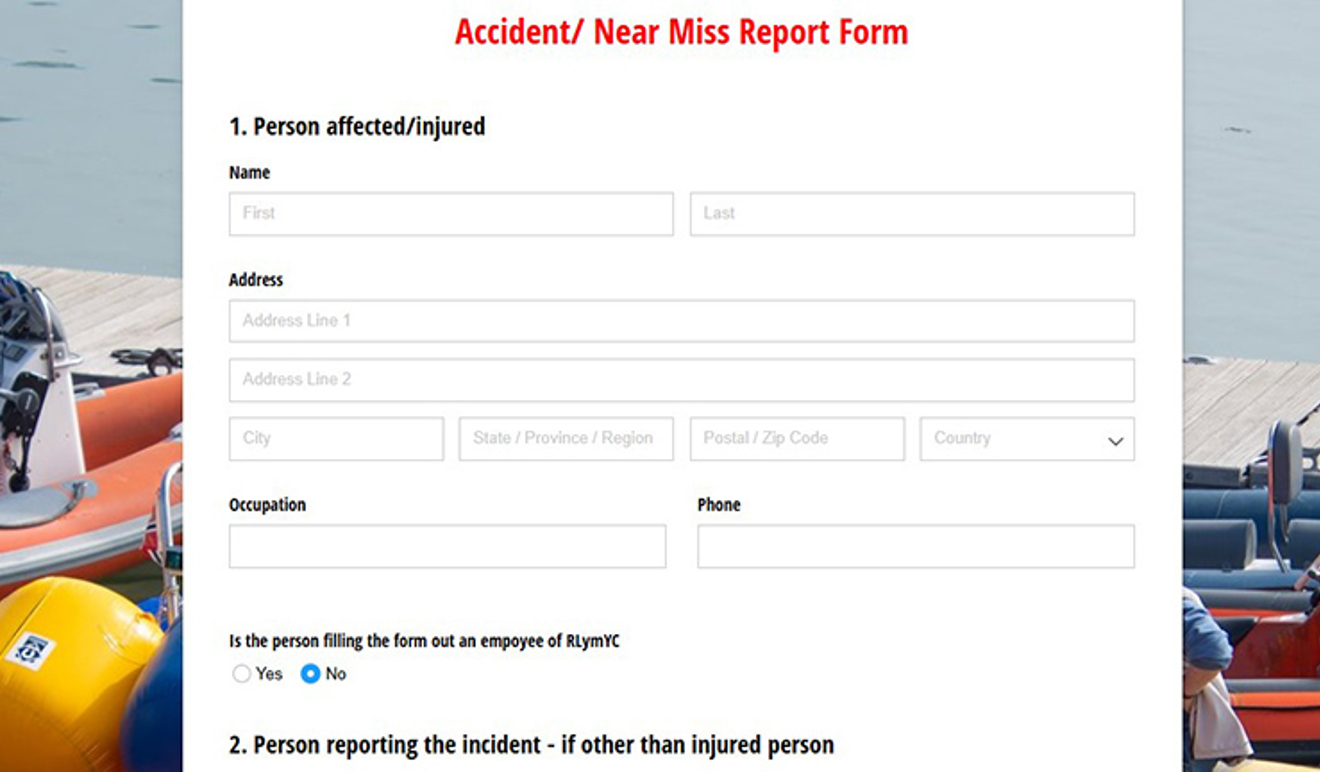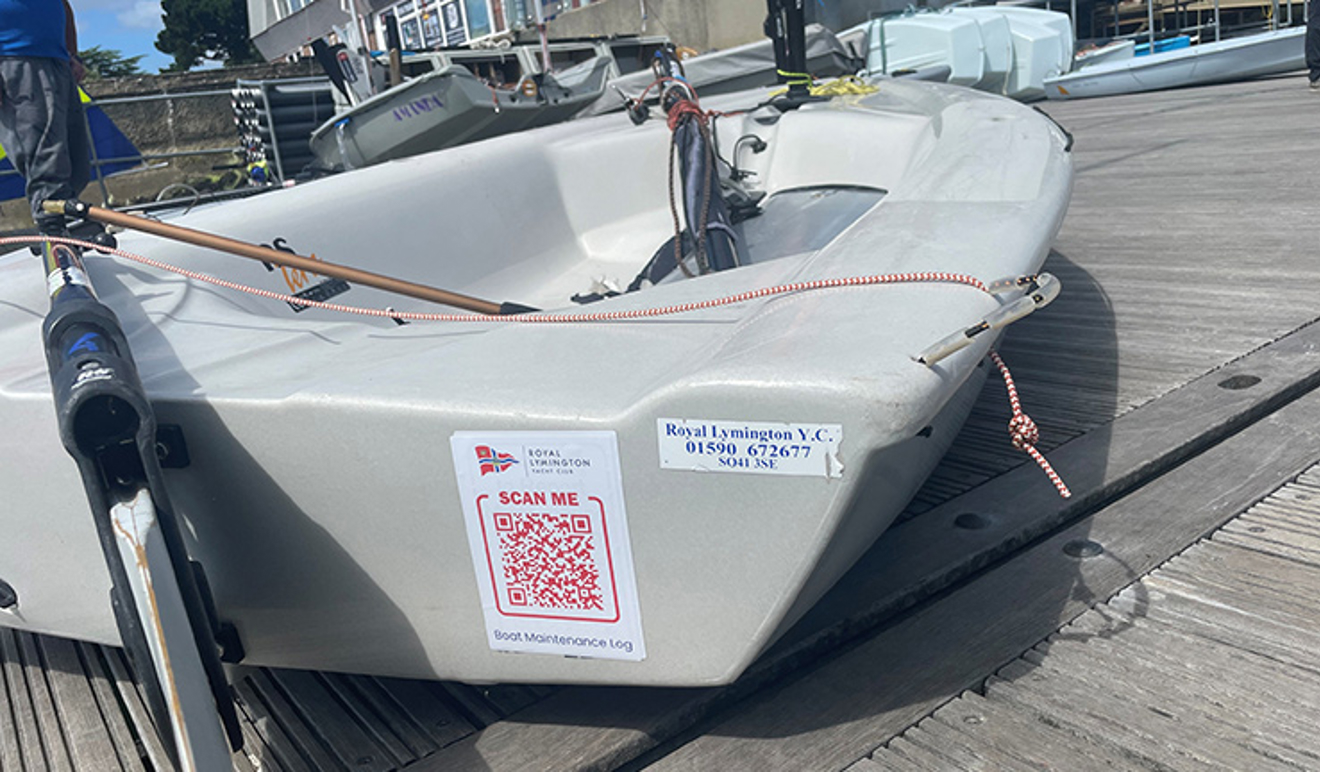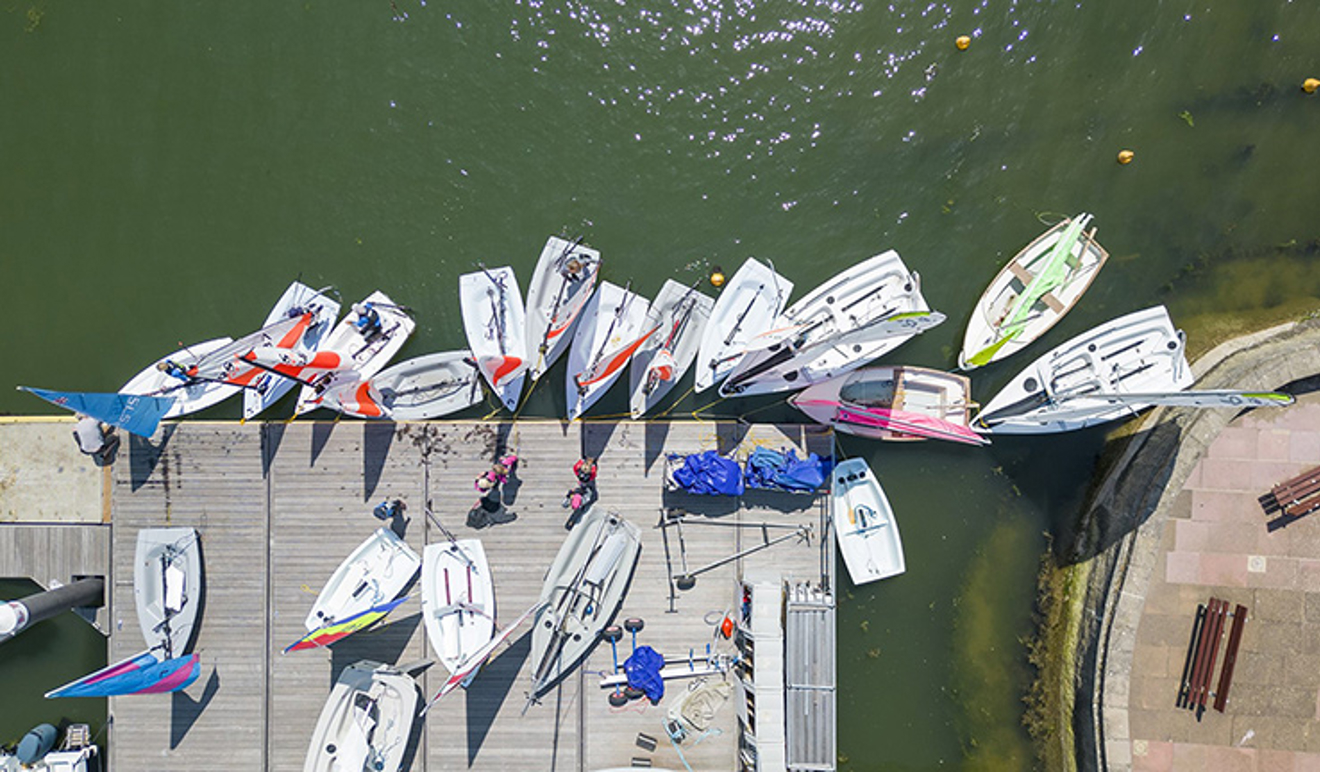15 July 2025
A digital first approach to safety management
We shine a spotlight on one club's innovative solution
Club overview
Located in the New Forest, Royal Lymington Yacht Club is one of the largest clubs on the south coast and an RYA Recognised Training Centre. The club offers a wide variety of courses, racing and cruising activities, including dinghy, keelboat and powerboat, and a vibrant youth and junior scene. It is open 364 days a year with a staff team supported by members and volunteers.
Identifying the problem
A club system of submitting accident/near miss reports on paper made it hard to analyse trends and learn from past incidents. There was also a misalignment across the different areas of activity, while an overwhelmingly large information pack made it difficult for instructors and volunteers to find and digest the relevant points.

Implementing a solution
Bringing experience from his previous role at Cardiff Bay Yacht Club, Training Manager Richard Mills joined the Royal Lymington YC in April 2024 and replaced the paperwork for accidents/near misses with an online Cognito form.
Cognito offers a flexible form builder that allows the collection of consistent data. Another advantage is that links can be included to direct people to relevant supporting documents - such as operating procedures - providing direct access to what they need to know.
It is also possible to add name and tick boxes for a ‘signature’, for example to identify the person submitting an account, or confirm they have read and understood a particular policy.
A drag-and-drop format makes it simple to create a form and a free version of Cognito has all the key features. A paid version also allows the selling of tickets.
Once forms have been submitted online, the account holder is able to analyse the data in a spreadsheet to monitor activity, take action where necessary, and spot trends.

Consolidating progress
The club now uses Cognito across its training activities, including for medical consent, daily risk assessments and staff/volunteer inductions, as well as accidents/near misses.
The forms and associated documents are available on the club website in a ‘Coaches Corner’ and also accessible via QR codes posted around the site, including on the pontoons.
The system has made it easier for coaches, instructors and volunteers to find and submit the right information and brought clarity and consistency to the club’s safety management.
Expanding the idea
Additionally, the club has introduced a Cognito form for maintenance, likewise accessible on the website or using a QR code, which again is posted around the site and has also been added as a sticker to every club boat and trailer.
Once a Cognito maintenance form has been submitted, progress on addressing a reported issue can be colour coded and logged along the way. For example: problem noted – actioned/waiting for a part - expected delivery/completion date - fixed.
Going forward the club is considering how to expand its ‘digital first’ approach to other areas of activity such as racing and running events.

Assessing the impact
Moving to a digital first approach for safety management and maintenance has streamlined operations and enabled recurring problems to be addressed.
For example, one accident trend highlighted the number of people picking up splinters from the pontoons. The club has since introduced mats to roll out during times of peak activity to successfully address the problem.
As Richard explains: “It’s really easy for people to report things and it’s helped tremendously with our maintenance schedule. We rarely now have a broken boat and if we do, we know why it’s not been fixed yet.
“Our digital forms also enable recurring problems to be spotted, which may lead to us doing things differently, whether that’s an operating procedure for health and safety, or ordering a better part for a boat.
“You can compile all the data in one place, manage it and move things forward.”
Insights and tips
Richard’s advice to other clubs it to give digital forms a go: “It doesn’t have to be daunting or involve doing everything all at once, just do it one step at a time. Think of a single area such as accidents or maintenance and see if you can build a form that will work for your club or centre.”
He adds that clubs might also want to follow the lead of Royal Lymington YC in making any online forms and supporting documents fully accessible to all: “While our forms are not front and centre on the website, they are there for everyone to see. This is useful not only to the club but for anyone wanting to find out more about what we do. For example, if a parent is looking for a course for their child, they can be reassured that we are a safe place to learn.
“The Royal Lymington Yacht Club has a reputation for excellence, and I want to continue to inspire confidence that we’re a modern and professional organisation.”
Useful links
- Cognito Free Online Form Builder With Workflow Automation
- Free Online QR Code Generator | Adobe Express
- Royal Lymington YC - Coaches' Corner | Instructor Resources & Forms
Royal Lymington YC has also found resources here:
- Dynamic QR codes – up to 10 free trackable QR codes which also allow link updating
- Waterproof vinyl stickers – the club finds these have a good outdoor life of about 3 years
